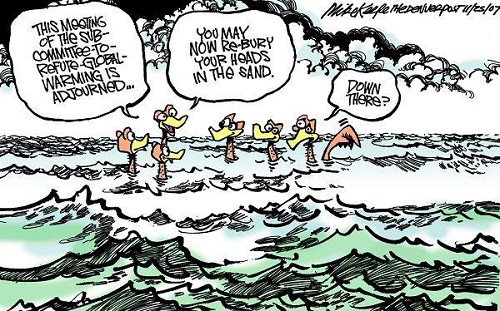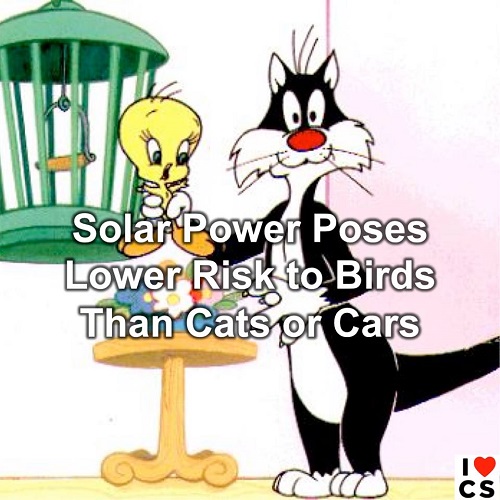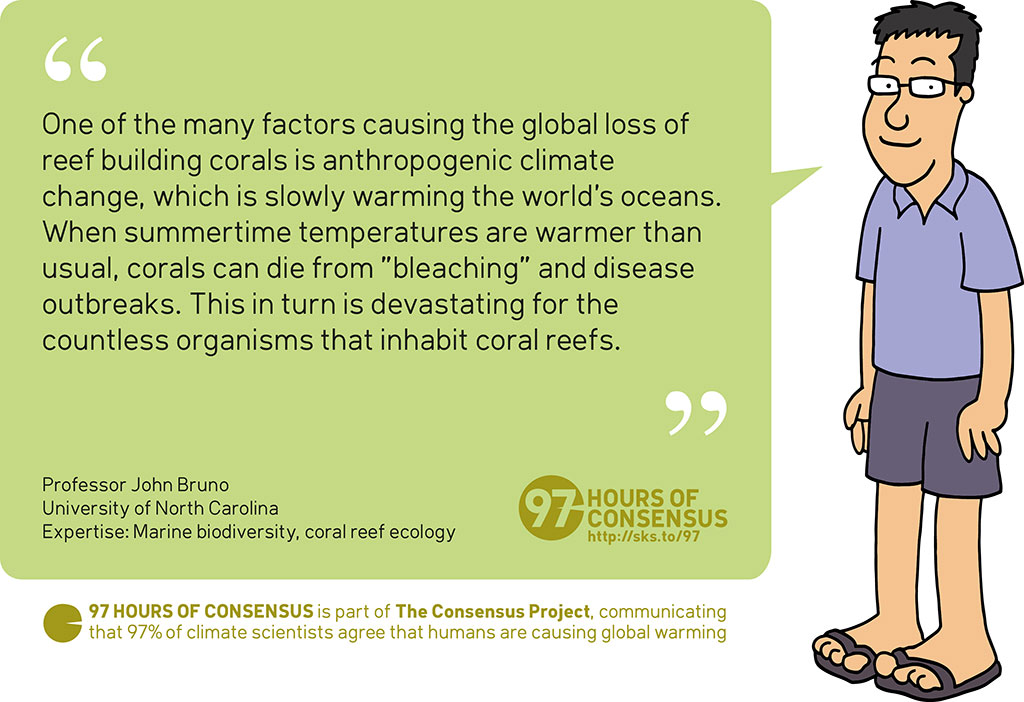2015 SkS Weekly Digest #11
Posted on 15 March 2015 by John Hartz
SkS Highlights
Artic sea ice and Antractic sea ice and land ice were a lively topic of discussion on the comment thread to the 2015 SkS Weekly News Roundup #11A. Consequently, it generated the highest number of comments of the items posted on SkS during the past week. So what did-in the dinosaurs? A murder mystery… by howardleee drew the second highest number of comments proving once again that everyone loves a good mystery story.
Breaking News!
There had never been as hot a 12-month period in NASA’s database as February 2014–January 2015. But that turned out to be a very short-lived record.
NASA reported this weekend that last month was the second-hottest February on record, which now makes March 2014–February 2015 the hottest 12 months on record. This is using a 12-month moving average, so we can “see the march of temperature change over time,” rather than just once every calendar year.
NASA: Earth Tops Hottest 12 Months On Record Again, Thanks To Warm February by Joe Romm, Thnk Progress, Mar 15, 2015
Toon of the Week

Hat tip to I Heart Climate Scientists
Quotes of the Week
"Now folks, we literally do not have the time to waste debating whether we can say “climate change.” We have to talk about how we solve climate change. Because no matter how much people want to bury their heads in the sand, it will not alter the fact that 97 percent of peer-reviewed climate studies confirm that climate change is happening and that human activity is largely responsible. I have been involved in public policy debates now for 40-plus years, whatever, since the 1960s. It is rare, rare, rare – I can tell you after 28 years-plus in the Senate – to get a super majority of studies to agree on anything. But 97 percent, over 20-plus years – that’s a dramatic statement of fact that no one of good conscience has a right to ignore."
- U.S. Secretary of State, John Kerry
Remarks at the Atlantic Council as Part of the Road to Paris Climate Series, Washington, D.C., Mar 12, 2015
“The scientific community feels it worked incredibly hard on this issue (climate Change),” Oreskes says. “It has done exactly what it is supposed to do, which is study the question carefully from many angles, publish the results in peer-reviewed journals, explain it to the public and in reports. Yet it has gained no traction. Or worse – scientists are facing active attempts to deny, discredit, harass and, in some cases, sully their reputations.”
The film that reveals how American ‘experts’ discredit climate scientists by Edward Hellmore, The Observer, Mar 14, 2015
SkS in the News
In his Letter-to-the-Editor, Misleading climate info shouldn’t be printed, published in the Dulth Tribune, Peter Kuntz states:
Show some journalistic integrity and do some fact-checking. The Skeptical Science website, which uses peer-reviewed climate science data, is an excellent place to start. Or look online at Scientific American.
The SkS graphic, Solar vs Temperature is referenced and linked to by Phil Plait in his Bard Astronomy/Slate article, Unlike Temperatures, Climate Change Deniers Are Falling Fast.
In his blog post, Secret to derailing dangerous denial of global warming, Doug Graig links to two of Dana's Guradian articles:
- Survey finds 97% of climate science papers agree warming is man-made
- Consensus and geoengineering - how to convince people about global warming
Coming Soon on SkS
- Human-induced warming is changing our weather in not-so-subtle ways (John Abraham)
- Crowdfunding Support for Science: The Dark Snow Project (Evelyn Messinger)
- 2015 SkS Weekly News Roundup #12A (John Hartz)
- Fossil fuels are way more expensive than you think (Dana)
- The cause of the greatest mass-extinctions of all? Pollution (Part 1) (John Mason)
- The cause of the greatest mass-extinctions of all? Pollution (Part 2) (John Mason)
- 2015 SkS Weekly News Roundup #12B (John Hartz)
- 2015 SkS Weekly Digest #12 (John Hartz)
Poster of the Week

SkS Week in Review
- 2015 SkS Weekly News Roundup #11B by John Hartz
- Scientists link Arctic warming to intense summer heatwaves in the northern hemisphere by Roz Pidcock
- So what did-in the dinosaurs? A murder mystery… by howardlee
- 2015 SkS Weekly News Roundup #11A by John Hartz
- Review of Climatology versus Pseudoscience by Greg Laden
- Consensus and geoengineering - how to convince people about global warming by Dana
- Summary of climate change impacts by ATTP
- 2015 SkS Weekly Digest #10 by John Hartz
97 Hours of Consensus: John Bruno
































 Arguments
Arguments






























May want to fix the typo in the 1st line "Antractic"?
Then delete my post if you want.
In addition to the 12 months ending in Feb 2015 being the warmest 12 months in the GISTEMP data set, the 6 months ending in Feb 2015 are also the warmest 6 months in the data set. The average for any other number of months more than 6 in the record also has the set ending in Feb 2015 as the warmest. And:
And the warm values ending in Feb 2015 have not been bumped by a significant El Nino event like the 2010 and 2007 values were bumped by.